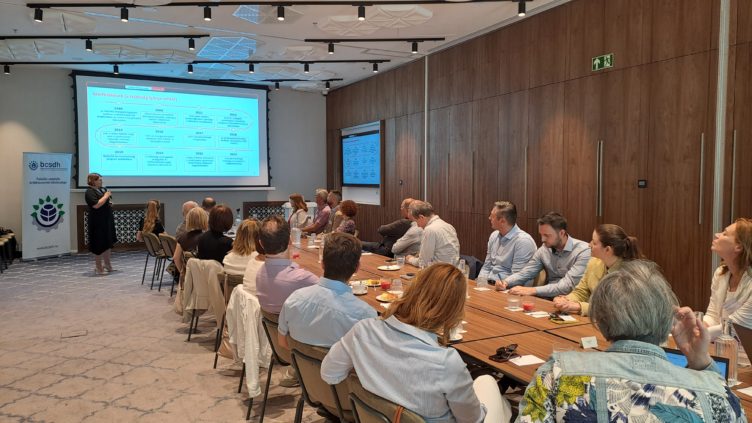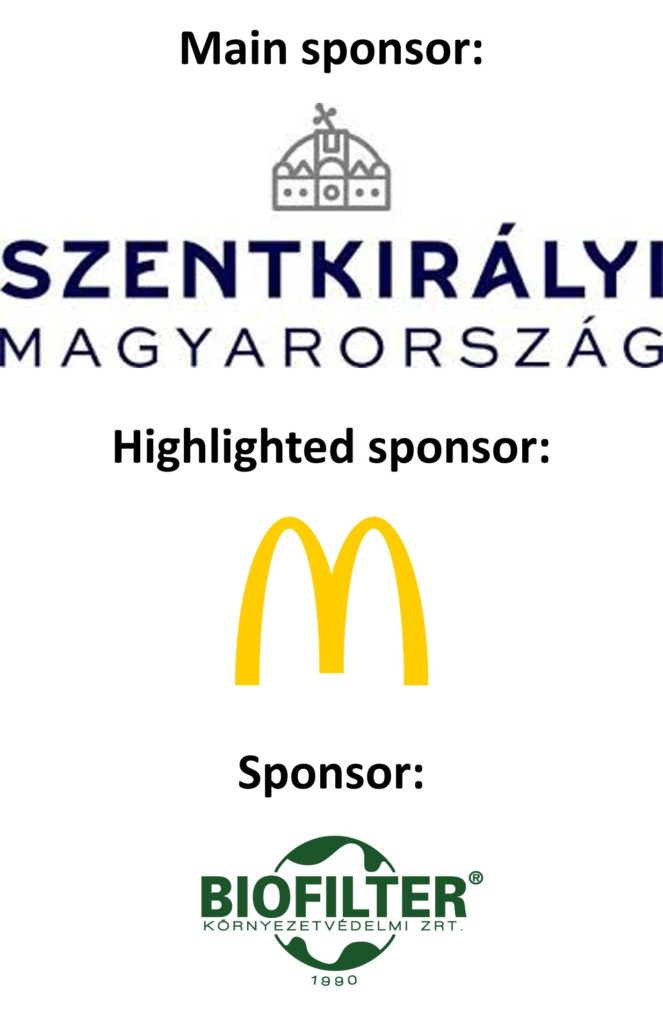The Three-Legged Stool is the most stable – How can a company, franchise partner, and supplier work together for a circular economy?
Progress Étteremhálózat Kft., which operates McDonald’s restaurants in Hungary, hosted our second Circular Economy Working Group meeting on June 11, which members of the Circular Economy Platform could follow in person or online.
At the working group meeting, we gained insight into McDonald’s sustainability strategy and the main findings of the 2025 Circularity Gap Report, as well as learning about the circular solutions of Master Good Kft. and Progress Restaurant Network Ltd. and the characteristics of supplier relationships that prioritize sustainability.
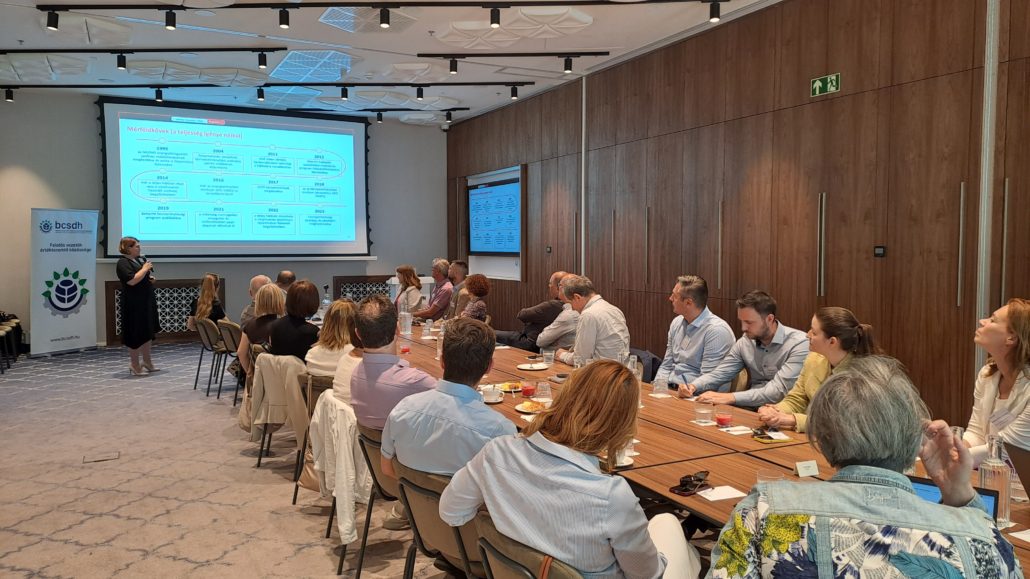
To kick off the meeting, Judit Szabó, Head of Communications and Sustainability, presented how McDonald’s can have a positive impact on people and the planet. She emphasized that among the solutions supporting the circular economy, the responsible and sustainable use of raw materials and waste management are key elements of the company’s sustainability strategy.
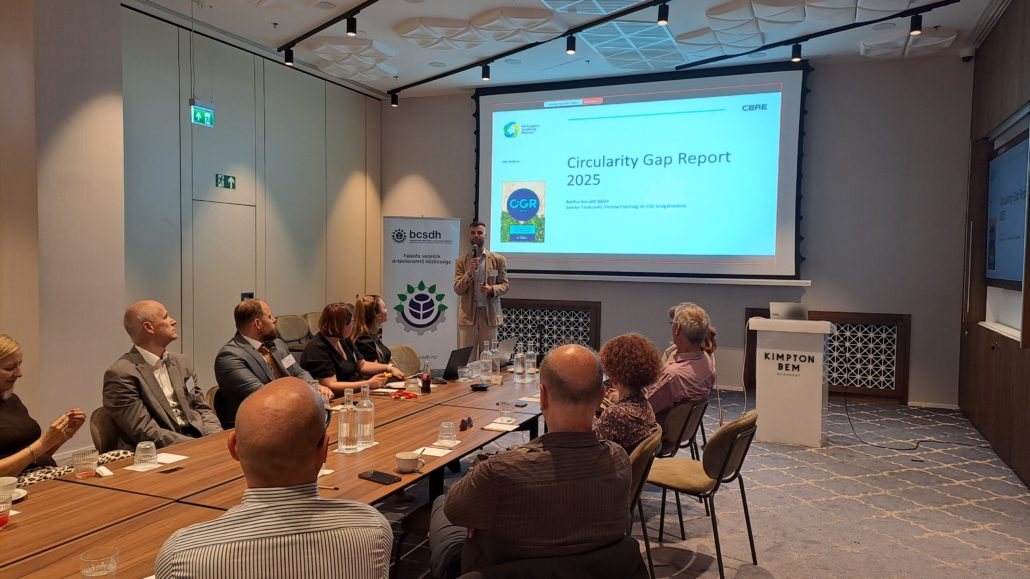
Dr. Bálint Bartha-Horváth, CBRE’s senior sustainability advisor, presented this year’s Circularity Gap Report. In addition to macroeconomic trends, the report focused on circular economy indicators, with 23 sub-indicators included in the document. The report reveals that although we have taken small steps forward, global circularity is still moving backwards due to increasing material use. The latest data shows that compared to last year’s 7.2%, only 6.9% of global material flows can be considered circular. Another important finding of the report is that recycling alone will not solve the problem: if we only recycle all waste and do not reduce material consumption, circular material use (CMU) could be increased to around 25%.
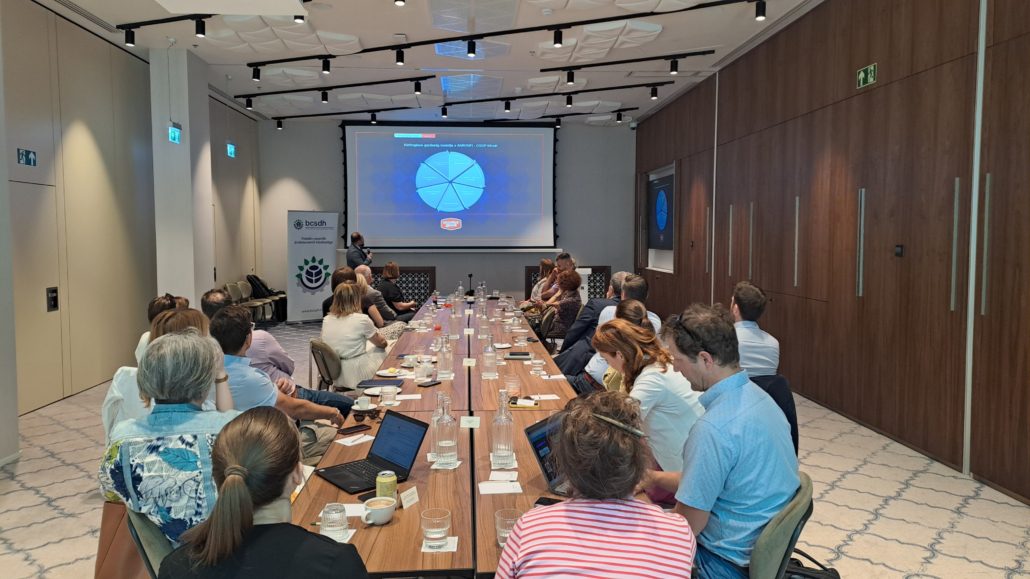
“We can use everything except chicken breath,” said Attila Szabó, innovation and sustainability manager, who presented the circular model of Master Good Kft. in detail. Thanks to the company’s efforts, Master Good became the first company in the world to receive certification from McDonald’s Flagship Farm program in 2015.
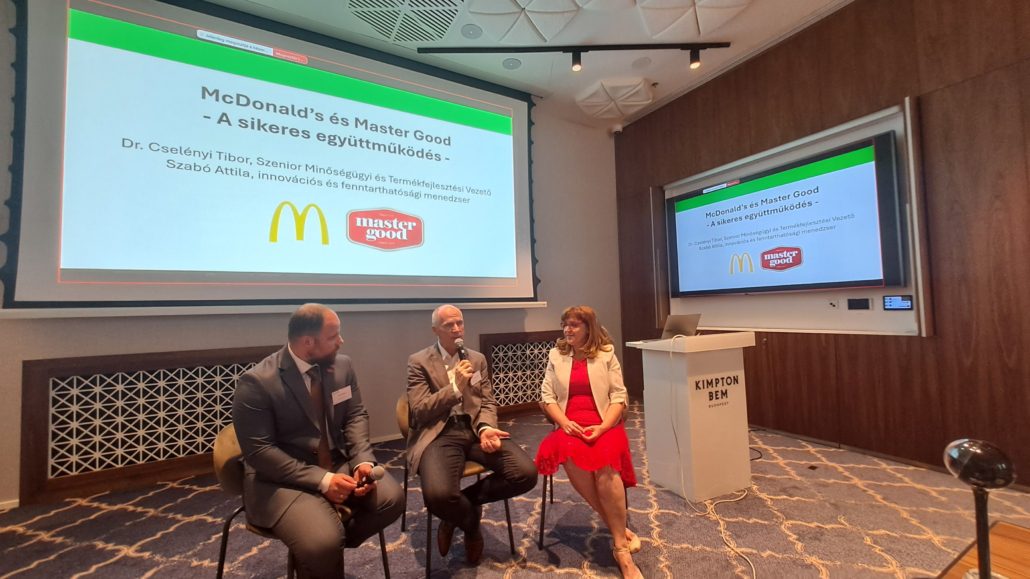
The meeting concluded with a roundtable discussion moderated by Irén Márta, director of BCSDH, with the participation of Dr. Tibor Cselényi, senior quality and product development manager at Progress Étteremhálózat Kft., and Attila Szabó, on successful supplier cooperation. McDonald’s partnerships are based on a Three-Legged Stool strategy. They believe that any party (company, franchise partner, supplier) can only grow if everyone grows. High-level partnerships are based on mutual benefits, shared values, and consistently high quality.
Thanks to our sponsors:

